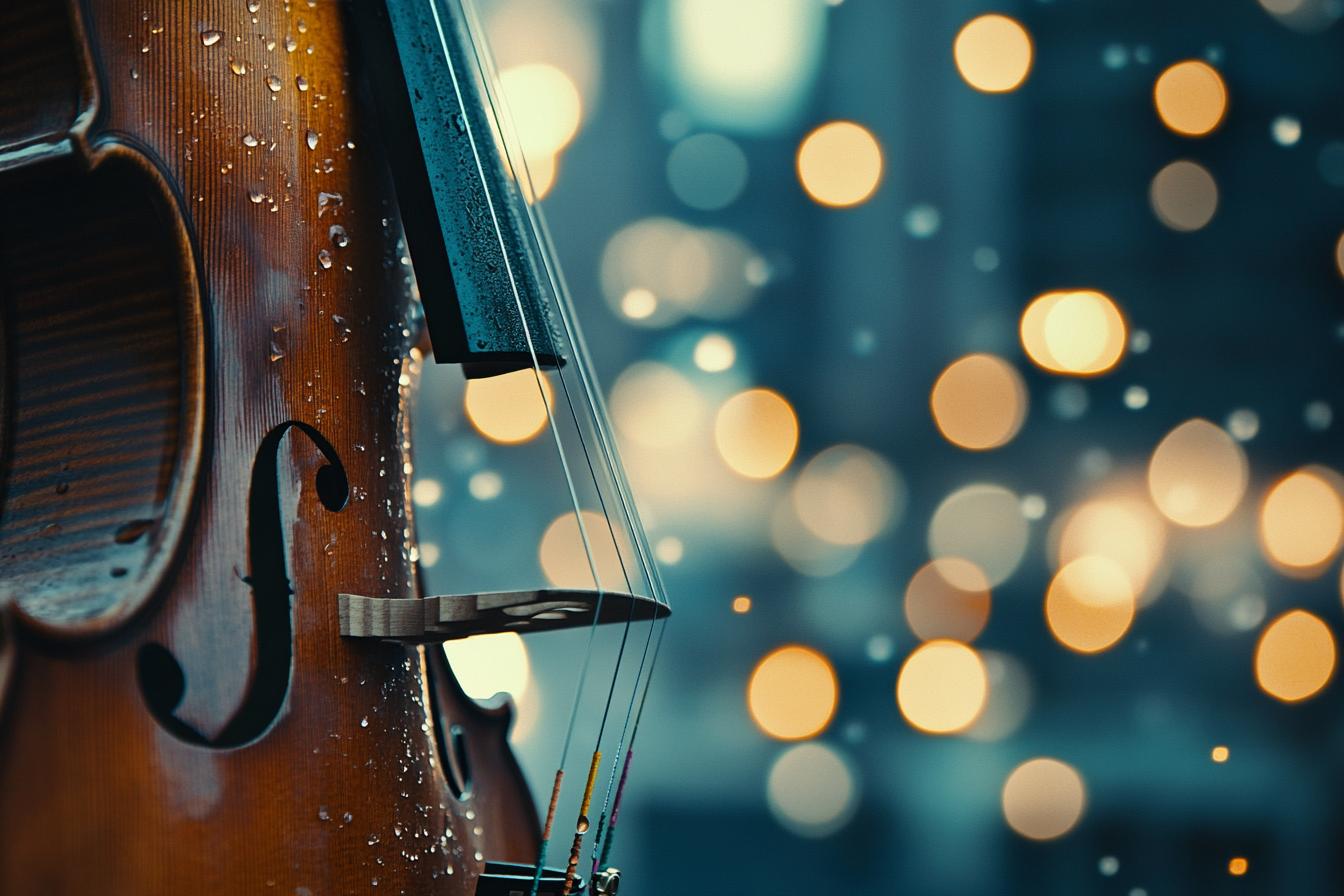The world of classical music, traditionally associated with grand concert halls and prestigious performances, has begun to experience a fascinating shift with the rise of “classical music leaks.” These leaks, often taking the form of recordings shared online, offer a unique window into the creative process, allowing listeners to experience works in their raw, unpolished state. While some may view these leaks as a violation of artistic integrity, others see them as a democratizing force, providing access to music that might otherwise remain hidden. Consider, for instance, the recent leak of a rehearsal recording of a renowned composer’s new symphony. While the recording was not intended for public consumption, it sparked lively discussions among music enthusiasts, offering insights into the composer’s creative journey and sparking debate about the nature of artistic ownership in the digital age.
The emergence of classical music leaks also raises intriguing questions about the role of radio and other traditional media platforms in disseminating music. As digital platforms become increasingly dominant, how will radio stations and other traditional outlets adapt to this new reality? Will they embrace the opportunity to showcase leaked recordings, providing listeners with a more intimate and unfiltered experience? Or will they continue to focus on polished, commercially released works, leaving the exploration of “leaked” material to the digital realm? The answers to these questions will likely shape the future of classical music distribution and consumption, blurring the lines between official releases and unofficial recordings and creating a dynamic landscape for music lovers to explore.

Classical Music Leaks
1. Classical Music Leaks
Classical music leaks are unauthorized releases of recordings, often shared online before the official release date. These leaks can come from various sources, including unfinished recordings, rehearsal sessions, or even stolen copies. While some leaks might be accidental, others are deliberate attempts to gain attention or disrupt the traditional release cycle. The impact of these leaks can be significant, affecting the financial success of the artists and labels involved.
The rise of online platforms and file-sharing services has made it easier than ever to share and access leaked content. This accessibility has led to a growing concern among the classical music industry, as leaks can erode the value of new releases and undermine the planned marketing campaigns. Furthermore, leaks can also lead to the unauthorized distribution of recordings that are not yet ready for public consumption, potentially damaging the reputation of the artists and composers involved.
2. Unauthorized Distribution
Unauthorized distribution refers to the sharing or dissemination of copyrighted classical music without permission from the rights holders. This can take many forms, from uploading recordings to file-sharing websites to selling counterfeit CDs. Such activities are illegal and can have serious consequences, including fines and even jail time. It’s important to remember that even if you’re not making money from sharing music, you are still breaking the law.
The impact of unauthorized distribution on the classical music industry is significant. It deprives artists and composers of much-needed revenue and hinders the creation and promotion of new music. Additionally, it can discourage musicians from pursuing a career in classical music. It’s crucial to support artists by accessing music through legitimate channels and respecting the rights of creators.
3. Copyright Infringement
Copyright infringement occurs when someone uses protected musical works without permission. This could involve unauthorized copying, distribution, or performance of a piece. In the context of classical music leaks, this often involves sharing recordings or sheet music online without the composer’s or rights holder’s consent. These leaks can be harmful because they deprive creators of potential revenue and control over their work.
Furthermore, copyright infringement can also be a legal issue. While sharing music with friends might seem harmless, it can lead to serious consequences, including fines and even legal action. For this reason, it’s essential to be mindful of copyright laws and to respect the rights of composers and their representatives. Understanding the consequences of unauthorized sharing will help people make informed decisions about accessing and enjoying classical music.
4. Impact on Composers and Performers
The widespread availability of classical music online, both legally and illegally, has significantly impacted composers and performers. While the internet offers a platform for greater exposure and reach, it also presents challenges to their livelihoods. Composers may find it difficult to monetize their work when recordings are readily available for free. Similarly, performers face difficulties securing gigs and earning income if audiences can access recordings without paying. This accessibility can hinder the financial support necessary for artists to continue creating and performing.
However, the internet also provides opportunities for composers and performers to connect directly with audiences. They can share their music through social media platforms and build a following through online concerts and performances. Furthermore, digital distribution platforms allow artists to sell their music directly to fans, bypassing traditional record labels and potentially earning a larger share of the profits. Ultimately, the impact of online music distribution on composers and performers is complex and multifaceted, with both positive and negative implications.
5. Legal Consequences
Sharing or downloading unauthorized recordings of classical music can have serious legal consequences. When you share a recording without permission, you are essentially infringing on the rights of the copyright holder. This can result in lawsuits, fines, or even criminal charges. The severity of the consequences will depend on various factors, such as the extent of the infringement and the intentions of the individual involved.
While sharing recordings with friends might seem harmless, the repercussions can be significant. Copyright holders often employ sophisticated monitoring systems to detect unauthorized distribution of their work, and they are actively pursuing legal action against individuals and websites involved in copyright infringement. Therefore, it is crucial to respect copyright laws and only access classical music through legitimate sources, ensuring that the artists and their work are appropriately compensated for their efforts.
6. Efforts to Combat Leaks
The music industry actively combats leaks by employing various strategies. One approach is to implement stricter security measures within recording studios and production facilities. This involves limiting access to recordings, using secure servers, and monitoring employee activity. Additionally, record labels often collaborate with law enforcement to investigate and prosecute individuals who leak unreleased music. These efforts aim to deter leaks and protect the financial interests of artists and labels.
Another strategy involves educating artists and industry professionals about the dangers of leaks and the importance of maintaining confidentiality. Record labels frequently provide training programs that emphasize the need to protect unreleased music and the consequences of sharing it prematurely. Furthermore, the industry has started to embrace digital rights management (DRM) technologies that can help control the distribution of recordings. These technologies aim to prevent unauthorized copying and sharing of music, further reducing the likelihood of leaks.
Conclusions
So, there you have it! Classical music, just like any other kind of music, faces the challenge of leaks and unauthorized distribution. It’s a bummer for composers and performers, who put their heart and soul into their work. These leaks can really hurt their chances of getting paid for their efforts. Thankfully, there are legal consequences for those who break the rules, and various groups are working hard to stop these leaks. By being aware of the issue and supporting artists in the right way, we can all help keep the beautiful world of classical music thriving.
